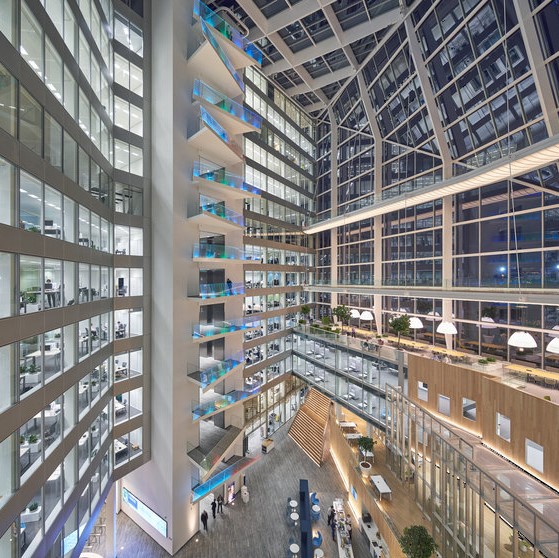June 21, 2019
HSBC strikes 1000 desk deal with WeWork
 HSBC has agreed a deal to locate more than a thousand members of London staff in a WeWork coworking space in London. WeWork confirmed to the Financial Times that the bank has signed up for 1,135 desks at its new building at 2 Southbank Place. The move is further proof of how coworking has become a mainstream option for large corporations as they seek to get more value our of their property and introduce new working methods. HSBC’s corporate real estate team and other staff already work from coworking spaces, but the new deal marks a step change in its strategy.
HSBC has agreed a deal to locate more than a thousand members of London staff in a WeWork coworking space in London. WeWork confirmed to the Financial Times that the bank has signed up for 1,135 desks at its new building at 2 Southbank Place. The move is further proof of how coworking has become a mainstream option for large corporations as they seek to get more value our of their property and introduce new working methods. HSBC’s corporate real estate team and other staff already work from coworking spaces, but the new deal marks a step change in its strategy.
Image: WeWork’s existing coworking space at Waterloo











 Hong Kong Central and London’s West End held onto their top spots in a ranking of the most expensive office market locations in the world at $322 and $220.70 per sq. ft. per year respectively according to the latest
Hong Kong Central and London’s West End held onto their top spots in a ranking of the most expensive office market locations in the world at $322 and $220.70 per sq. ft. per year respectively according to the latest 








 Cities with tech innovation-oriented cultures have a strong competitive advantage amongst those investing in commercial real estate, claims
Cities with tech innovation-oriented cultures have a strong competitive advantage amongst those investing in commercial real estate, claims 












June 19, 2019
Coworking is now the key driver of change in property market
by Daniel Wright • Comment, Property, Workplace design